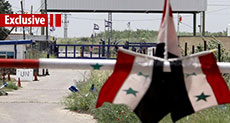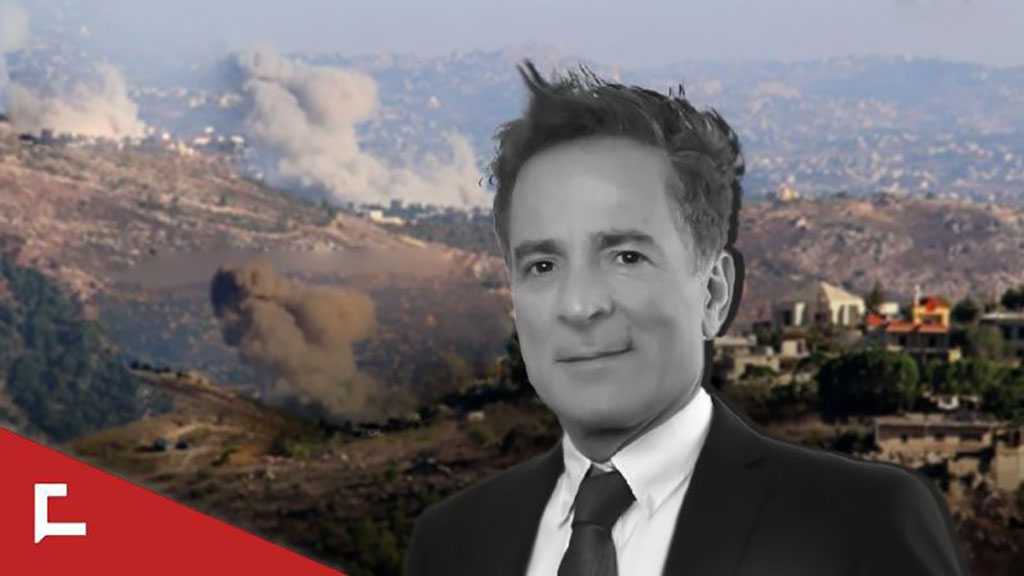‘Israeli’ Concerns over What Comes After the Syrian Confrontation

Jihad Haidar
Not only did ‘Israel' "recognize" the attack on Syrian territory through official statements and stances expressed here and there, but also Prime Minister Benjamin Netanyahu tackled it himself, in what marks an unprecedented move during the years of ‘Israeli' aggression on Syrian soil.

Netanyahu was keen to target one of the positions of the Syrian army in the eastern Homs countryside within the framework of what "Israel" calls "the battle between the wars". He claims that the raid targeted "sophisticated" weapons that would have been transferred to Lebanon's "Hezbollah". By doing so, he wanted to give it a specific character of legitimacy [in a sense], as well as suggest that "Israel" has not yet decided to part company with the prevailing equation.
Netanyahu also wanted to paint the events as being part of the "preventive" framework for qualitative weapons and to direct a two-way message. The first message is directed at the parties concerned with responding to "Israel's" attacks, especially in light of the Syrian response to the ‘Israeli' raids. This is because Netanyahu is aware that any perception on the part of the resistance axis that "Israel" has moved to escalate the situation through this attack would have serious security and regional repercussions.
The second is directed at the Russian leadership, especially after the Russian foreign ministry summoned the ‘Israeli' ambassador for a clarification session. But the concern in Tel Aviv is that ‘Israel' is about to be handed a "yellow card". That is why Netanyahu's goal is to make sure that these strikes are perceived as an extension of a strategy that ‘Israel' has been following for years. The ‘Israeli' Premier added "these kinds of strikes will continue. When we monitor attempts to transfer advanced weapons to ‘Hezbollah' and receive information from intelligence agencies in this regard, we are moving to prevent them."
However, it should be pointed out that what contributed to inflaming the regional situation in the wake of the ‘Israeli' air strikes and pushing the military political leadership in Tel Aviv to explain what happened goes back to the Syrian response to the ‘Israeli' strikes - raising terror among the ‘Israeli' public.
But the most important factor that seems to have come to the attention of the political and security decision makers in Tel Aviv is related to President Assad's motives behind the decision to confront the ‘Israeli' aircraft at this particular stage and concern about future scenarios. What is certain is that the enemy sees President Assad's decision to engage in a confrontation as an indication of his confidence in the effectiveness of the Russian and regional umbrella, which provides his regime with a safety valve in the face of any serious ‘Israeli' threat. Especially after the battlefield victories achieved by the Syrian army and its allies culminating in the liberation of Aleppo.
In light of this, concerns in Tel Aviv stem from the assumption that what has happened is the beginning of a new course in dealing with the ‘Israeli' aggression, and whether it will lead to an escalation. Thus, will ‘Israeli' planes face more serious threats later, or will the response take other forms? Against this backdrop, threats were made by ‘Israeli' War Minister Avigdor Lieberman to destroy the Syrian air defense systems if they attack ‘Israeli' planes the next time around.
Lieberman's threat reflects an ‘Israeli' assessment highlighting the gravity and danger, stemming from Syria's latest performance. Especially that Syria's measures to protects its air defense systems can lead to the downing of ‘Israeli' aircraft, which leaves the ‘Israelis' facing the merits of studying alternative options:
- Either to adapt to this threat and accept these costs. This is a scenario that has a negative impact on ‘Israeli' security and internal affairs. It is difficult for ‘Israel' to adapt this course.
- Or to retreat from continuing with this policy. This also has a negative deterrence reaction, specifically in that it strengthens the deterrent capability of the axis of resistance and provides an umbrella of protection for the growing strategic capabilities of "Hezbollah".
- Or to initiate an offensive option aimed at destroying the air defense systems - a scenario that may have implications, leaving ‘Israel' unable to offer assurances in terms of possible political and security outcomes.
It seems that "Israel" has proposed from these scenarios - at the current stage- the option of deterrence by launching threats aimed at pushing Syria to retreat from this path.
In any case, ‘Israel' has sensed by itself the hypothesis that any incident could develop into a broad confrontation, but this time the Syrian state and its allies would be better positioned to benefit.
Al-Ahed News




